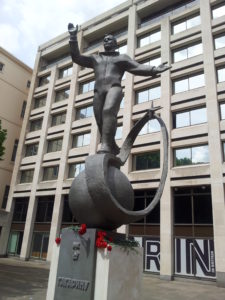 Not often I do this .. I really should. There are some amazing podcasts out there. If you have one that you recommend – leave a link in a comment below.
Not often I do this .. I really should. There are some amazing podcasts out there. If you have one that you recommend – leave a link in a comment below.
How Apollo Flew to the Moon. W David Woods author of How Apollo Flew to the Moon – a fascinating insight in to the technology that took the first humans to the Moon. David is in conversation with Markus Völter on OmegaTau Podcast. A Germany based podcast and many of the episodes including this one are in English.
Just over two hours long this audio podcast is as captivating as it is long.
David will be speaking in persons at the British Interplanetary Society Northern Meeting in York on May 19th. A fiver for a day-long event.
Download this updated pdf document with all details.
 A
A 